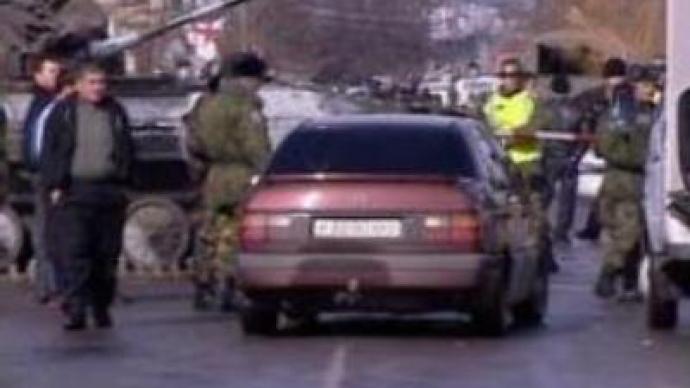Trans-Caucasian highway still blocked

The South Ossetian authorities are still blockading parts of the main road connecting the breakaway republic with Georgia. On Saturday gunfire was reported close to the capital of South Ossetia, Tskhinvali.
The South Ossetian authorities claim Georgia opened fire first. Georgia denies this.The decision to block the Trans-Caucasian highway, going through several Georgian villages, was made by the South Ossetian authorities last Thursday. They claim that it is necessary to block this road so Georgian troops stationed in the area won't be able to harass the civilian population. The Ossetians claim that they were mistreated on the Georgian side of the border, so the blockade is a necessary measure. “I was stopped in Tekhvi. They held us everywhere for two hours. Then they let us go. I think it was intentional. I have a Russian passport and I receive a Russian pension. What can I do?” claimed a man.Georgian farmers are also suffering from the blockade. They're unable to bring their goods to the local market. “Of course it affects the selling. The customers don’t show up. Perhaps it’s because of the roads, ” said a woman, a victim of the blockade.A month ago, Georgia increased its military presence in the area allegedly violating previous peace agreements.A violent conflict between Georgia and its breakaway republic of South Ossetia was sparked at the beginning of the 90’s. Ethnic Ossetians living in this area proclaimed independence from the Tbilisi Government and formed their own republic with the capital of Tskhinvali. Since then, incidents have continued, but serious loss of life has been prevented. Joint CIS peacekeeping forces entered South Ossetia in 1992.Political analyst specializing in the problems of Georgia’s breakaway republics, Mamuka Areshidze, says both sides of the conflict should be aware that the civilian population suffers the most from any kind of sanctions.“We are ready to stop any provocation or attack and we have all the arms for it. We have knowledge, skills and spirit. We will stand our ground, we won’t step back or give it away to anyone,” he said.Meanwhile, the South Ossetian officials have come up with a plan to stop the violence. South Ossetian President Eduard Kokoyti, says his government is ready to discuss it with Georgia: “We are offering the Georgian side to sit at the negotiations table and to prepare a memorandum and to have it signed by the presidents of South Ossetia and Georgia. The memorandum will prohibit further military action and use of violence or threats.”So far there has been no Georgian response to the South Ossetian initiative. But even if negotiations take place in the nearest future, it might take a while to find a peaceful solution.
You can share this story on social media:












